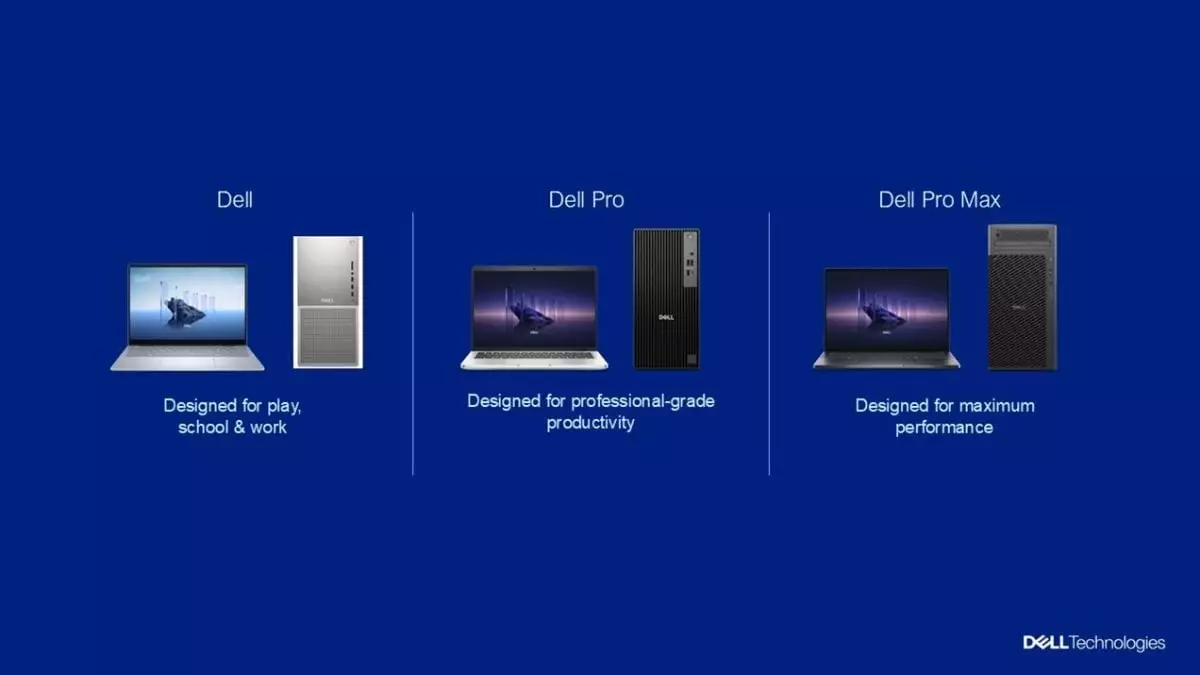At the Consumer Electronics Show (CES) 2025 held in Las Vegas on January 6, Dell Technologies unveiled an exciting new line-up of devices that showcases the company’s commitment to streamlining its product offerings while integrating advanced on-device artificial intelligence (AI) capabilities. Departing from the long-established branding conventions, the new strategy prioritizes simplicity and recognition by predominantly featuring the Dell name alone. This bold move marks the end of iconic labels like Inspiron and XPS, ushering in three distinct categories: Dell, Dell Pro, and Dell Pro Max. Each segment is tailored to meet the specific needs of varied users, from casual to professional.
The new consumer-centric lineup aligns devices under distinct use-cases. The standard Dell category encompasses devices meant for play, education, and everyday work tasks, bridging the gap for general users. The Dell Pro range addresses the demands of professionals seeking robust productivity tools, while the high-performance Dell Pro Max is engineered for users who push their devices to the limits, perhaps in high-end creative or computational tasks. This segmentation reflects Dell’s understanding of the multifaceted nature of modern computing needs and positions the brand as adaptable and responsive to user demands.
One of the most innovative aspects of the new Dell offerings is the breadth beyond traditional laptops and PCs. The Dell and Dell Pro labels extend to an entire ecosystem comprising displays, accessories, and complementary services. This creates an integrated user experience, ensuring that whether consumers are purchasing a monitor to accompany their laptop or additional peripherals, they receive a cohesive and optimized performance package. However, in maintaining a commitment to its gaming legacy, Dell continues to support the Alienware branding, indicating a dual focus on both general-purpose computing and high-performance gaming.
In conjunction with the device announcements, Dell introduced groundbreaking AI capabilities geared towards both end-users and developers. Each new Dell AI PC is equipped with an on-board neural processing unit (NPU) and Intel’s high-performance Ultra Series 2 processors, with the option of AMD Ryzen alternatives available. This versatility caters to users with different preferences and processing demands. Furthermore, the introduction of the Dell Pro AI Studio is a noteworthy initiative within the Dell AI Factory. This toolkit streamlines AI development, making it accessible and efficient for both developers and IT administrators. By reducing development and deployment time by as much as 75%, Dell is positioning itself as a leader in AI integration across computing platforms.
Overall, Dell Technologies is making significant strides in redefining its product landscape while embracing the future of computer technology. Through its simplified branding, expansive ecosystem, and dedicated focus on AI capabilities, Dell is not just responding to current trends but actively shaping the future of personal and professional computing. As these new devices hit the market, it will be fascinating to see how consumers respond and engage with this forward-thinking integration of technology and design.


Leave a Reply